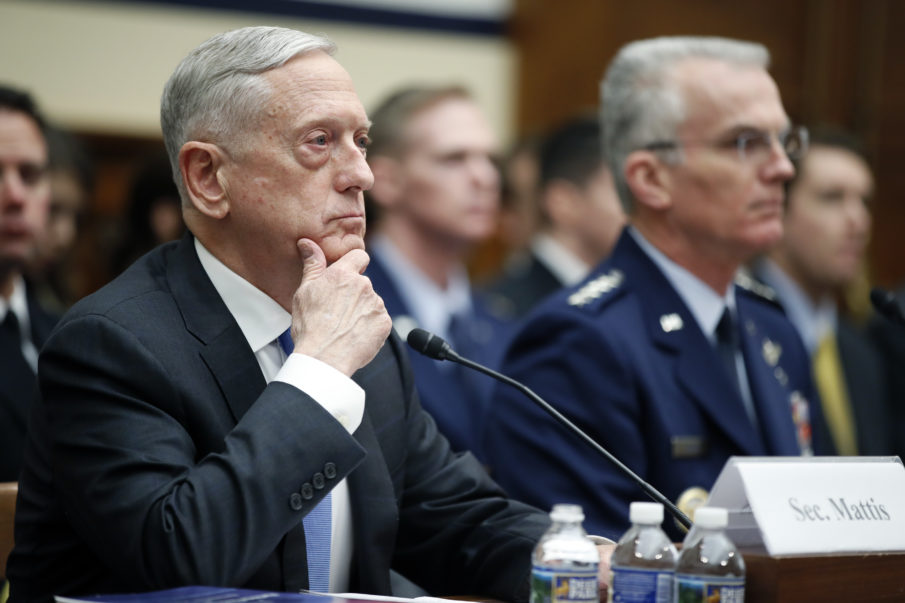Echoing similar statements James Mattis made in the months leading up to the start of the new fiscal year, the Defense Secretary once again called on lawmakers to pass a legitimate budget for the fiscal year that is already in its fourth month.
The United States has been at war in multiple theaters since 2001, while simultaneously maintaining security and stabilizing presences the world over. A rash of high profile incidents involving Navy ships and Marine Corps aircraft in recent months has drawn particular attention to the maintenance and training standards required in order to maintain ongoing operations, as well the operational tempo itself. According to officials within the Defense Department, the Pentagon does need that larger budget promised by recent legislation, but more importantly, it needs consistent funding. Maintenance and modernization endeavors alike come to a halt during periods of government closure or, as is currently the case, continuing resolutions spending.
As hard as the last 16 years of war have been, no enemy in the field has done as much to harm to the readiness of the U.S. military than the combined impact of the Budget Control Act’s defense spending caps, worsened by operating for 10 of the last 11 years under continuing resolutions of varied and unpredictable duration,” the secretary said.
“The Budget Control Act was purposefully designed to be so injurious that it would force Congress to pass necessary budgets — it was never intended to be the solution.”
Mattis also addressed the need to remove spending caps that could potentially stand in the way of the U.S. military’s broad modernization efforts. The entirety of the U.S. military recently underwent a dramatic shift in operational strategy, with an increasing emphasis being placed on the potential for war with nation-level opponents, rather than the rogue groups of extremists that have made up the better part of the War on Terror.
Failure to modernize our military risks leaving us with a force that could dominate the last war, but be irrelevant to tomorrow’s security,” the secretary, appearing with the Vice Chairman of the Joint Chiefs of Staff Air Force Gen. Paul J. Selva, told the House Armed Services Committee on Tuesday.
He went on to call on lawmakers to “to lift the defense spending caps and support a budget for our military of $700 billion for fiscal year 2018 and $716 billion for the next fiscal year.”
According to Mattis, continuing resolution funding, while seemingly an acceptable stop-gap in the minds of many politicians, would actually cause serious damage to the nation’s defensive efforts.
Even though we are protecting ongoing operations from continuing resolution disruptions, each increment of funding in support of our partners in Afghanistan, Iraq and Syria requires a 15-day Congressional notification,” Mattis said. “My commanders in the field write to me for help in getting timely and predictable funds for their efforts as they work to execute our strategy against the enemy in the field.”
That isn’t all, however. In a press release, Mattis went on to list a number of other issues that would surface is continuing resolution spending stretched on to a year. Per the statement, under continuing resolution spending, the DoD would:
- Not be able to provide pay for troops by the end of the fiscal year
- Not recruit the 15,000 soldiers and 4,000 airmen required to fill critical manning shortfalls
- Not maintain ships at sea with the proper balance between operations and time in port for maintenance
Mattis said continuing negative budget circumstances would also:
Already have an account? Sign In
Two ways to continue to read this article.
Subscribe
$1.99
every 4 weeks
- Unlimited access to all articles
- Support independent journalism
- Ad-free reading experience
Subscribe Now
Recurring Monthly. Cancel Anytime.










COMMENTS